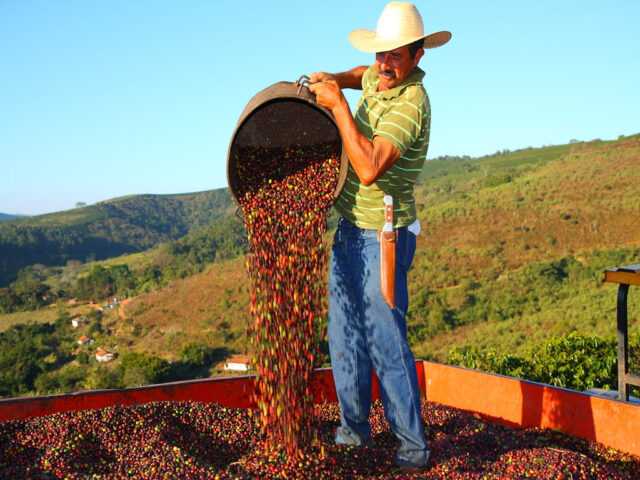Share your coffee stories with us by writing to info@comunicaffe.com.
SÃO PAULO, Brazil – Green coffee shipments started 2018 at a slow pace and may continue slow throughout this 2017/18 season. According to the latest report from Cepea, this scenario has been observed since 2017, because of refrained sellers, low supply in Brazil and the low interest of purchasers, who may wait for the beginning of the 2018/19 national crop to buy higher volumes.
Besides the positive biennial cycle for arabica next crop, good weather conditions have helped the grains filling process for both varieties, arabica and robusta, and crops renewal, mainly for robusta, which may allow a large crop this year.
Coffee Exporters Council, known as Cecafé, says that, in the partial of the season (from July/17 to January/18), 16.31 million 60-kilo bags of green beans (arabica and robusta) were shipped, for a decrease of 11.2% compared to the same period last season (2016/17).
Considering the volume of arabica alone, the decrease in the same comparison is 11.34%. On the other hand, robusta shipments increased a slight 2.45% in the same period, due to the higher Brazilian production.
However, the volume of robusta is not significant, accounting for only 186 thousand bags. Specifically in January/18, total coffee shipments amounted 2.32 million 60-kilo bags, 12% smaller compared to the total in December/17.
Domestic Market
Although most agents were refrained, some trades were closed in the first fortnight of February. Liquidity increased from February 6 onwards, when future contracts at ICE Futures rose 305 points, pushing up values in Brazil and attracting more sellers to the spot market.
Higher dollar quotes underpinned prices in Brazil in the first full week of the month, encouraging trades. However, agents refrained after that, due to the Carnaval period, which slowed down the pace of trades.
Field
Rains in early February in the robusta-producing region from Espírito Santo (ES) brought some relief to coffee growers, who were concerned with the firm and warm weather in January – the water reservoirs in that state have not reached safe levels yet.
The robusta crops from ES are currently at the grain-filling stage and a dry season now could limit the development of the 2018/19 crop.
The weather was favorable to the Brazilian arabica crops in the first fortnight of February as well. According to Cepea collaborators, the grains-filling stage was advancing without any problems in all regions surveyed by Cepea.
This positive scenario, in turn, continued to press down domestic and international arabica prices.















